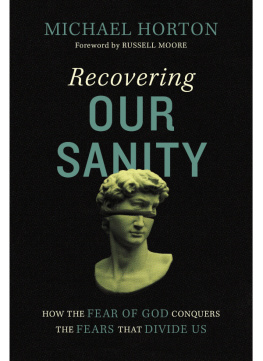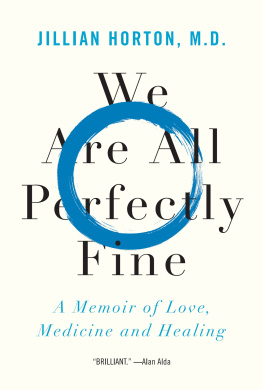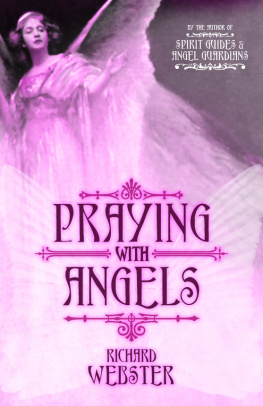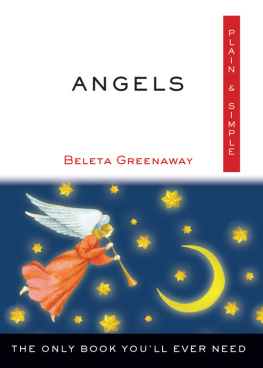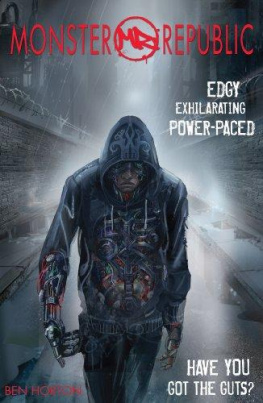Babs Horton - A Jarful of Angels
Here you can read online Babs Horton - A Jarful of Angels full text of the book (entire story) in english for free. Download pdf and epub, get meaning, cover and reviews about this ebook. year: 2003, publisher: Pocket Books, genre: Detective and thriller. Description of the work, (preface) as well as reviews are available. Best literature library LitArk.com created for fans of good reading and offers a wide selection of genres:
Romance novel
Science fiction
Adventure
Detective
Science
History
Home and family
Prose
Art
Politics
Computer
Non-fiction
Religion
Business
Children
Humor
Choose a favorite category and find really read worthwhile books. Enjoy immersion in the world of imagination, feel the emotions of the characters or learn something new for yourself, make an fascinating discovery.

- Book:A Jarful of Angels
- Author:
- Publisher:Pocket Books
- Genre:
- Year:2003
- Rating:5 / 5
- Favourites:Add to favourites
- Your mark:
- 100
- 1
- 2
- 3
- 4
- 5
A Jarful of Angels: summary, description and annotation
We offer to read an annotation, description, summary or preface (depends on what the author of the book "A Jarful of Angels" wrote himself). If you haven't found the necessary information about the book — write in the comments, we will try to find it.
Babs Horton: author's other books
Who wrote A Jarful of Angels? Find out the surname, the name of the author of the book and a list of all author's works by series.
A Jarful of Angels — read online for free the complete book (whole text) full work
Below is the text of the book, divided by pages. System saving the place of the last page read, allows you to conveniently read the book "A Jarful of Angels" online for free, without having to search again every time where you left off. Put a bookmark, and you can go to the page where you finished reading at any time.
Font size:
Interval:
Bookmark:
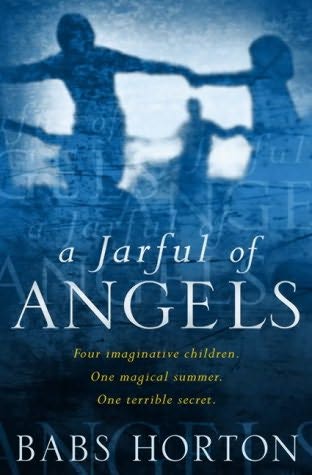 |
Babs Horton
A Jarful of Angels
2003
An evocative literary thriller set in a remote Welsh village. Thirty years ago, in a remote Welsh village, Iffy, Bessie, Fatty and Billy formed a remarkable friendship and enjoyed an impoverished yet magical childhood. That winter they found a skull with its front teeth missing, that summer they experienced a plague of frogs, crept into a garden full of strange statutes, and discovered just what mad Carty Annie had been collecting so secretly in those jars of hers. But at the end of that long, hot summer of 1963, one of them disappearedOver thirty years later, retired detective Will Sloane, is compelled to return to that strange Welsh town of secrets and lunatics to try to solve the case of the missing child. But before he can finally discover the truth about what happened, he finds himself involved in a number of interlocking mysteries.
D ancing Duck Lane is no longer marked on the map, perhaps it never was, but it can still be found. From the hump-backed bridge take the road to the left and keep close to the crumbling walls that enclose the charred ruins of the Big House where the roof has long fallen in and where a descendant of the Old Bugger lives now. Magpies yammer in the overgrown kitchen gardens and the statues of the white-skinned girls lie mildewing where they have fallen in the long wet grass. Follow the curve of the river away past the lonely recreation ground. There, the ghost children turn the solitary roundabout, invisible feet kicking up the black dust, their voices rising and falling on winds that still blow up the valley from the faraway sea. Climb over the rotting stile and on past the withered tree. Dancing Duck Lane is an overgrown track leading nowhere in particular.
Only the rubble remains now of Carty Annies tumbledown house. Dandelion clocks, stinging nettles and yellow poppies grow there in wild profusion. Stoop down and run your fingers through the damp soil and there in the black coal earth you will find the splintered remnants of tiny bones and the fragments of a hundred broken jars, jars that once held so terrible and so marvellous a secret.
I t was a town of lopsided old houses that stretched in terraces up the steep hills towards the restless skies. Inkerman, Balaclava, Sebastopol, and Iron Row where three-legged dogs ran amok and a mad woman swallowed live fish by the bucketful.
There was a Big House hidden away behind high walls where English people had once lived and ghosts still did. It was looked after by Mr Sandicock, a gruff-voiced old misery guts who kept to himself.
In the garden there were statues of naked girls. Sometimes, when the moon was full they came alive and danced on the satin smooth lawns. Then the waters of the fishpond would begin to stir and bubble and the slimy ghost of drowned Dr Medlicott crawled out of the thick, black water and chased them round and round the garden.
The centre of the childrens world was the hump-backed bridge where they had written their names in the concrete, long before they could spell them properly.
Lorence Bevan
William Jonh Edwerds
Elizabeth Gwendlin Meredith
Elibazeth Roof Tranter
It was a town of coal tips and black-faced, whistling colliers whose boots scored bright sparks in the sloping back gwlis.
There were pubs that people were chucked out of:
the Punch
the Greyhound
the Mechanics
the Black Prince
And churches and chapels they were dragged into:
Ebenezer
Carmel
Bethesda
Saint Wilfreds
the Church of the Immaculate Contraption
There was a town clock with a bong but no tock or tick.
A Penny Bazaar
The Corn Shop
Gladyss Gowns
Three Italian cafs with ice cream in silver dishes with raspberry sauce and men with gold teeth serving. A picture house called Olympia the Limp a fleapit where gummy old women sucked blood oranges and soppy couples kissed.
Iffy Meredith lived in Inkerman Terrace and so did Bessie Tranter.
Inkerman was one of the Three Rows. Inkerman was almost identical to Balaclava and Sebastopol. They were terraces of small whitewashed houses built for the ironworkers hundreds of years ago. They were all owned by Rabinowicz who lived with the nobs down in Cardiff. Every Thursday he sent a man called Moany Haddock to collect the rents. Moany Haddock had bright red hair and a wrinkly old arse that squeaked when he walked.
Every house had a back door and one sash window. The backs of the houses were single-storeyed, the fronts two. The fronts looked onto a small walled garden, and a gate led into the gwli. Hardly anyone ever used the front doors, only for funerals, weddings and burglary. They lived happier coming and going through the back. From the back doors they stepped onto a communal bailey that stretched from one end of the row to the other. It was where the women washed the clothes in battered tin tubs with washing boards and Sunlight or Fairy soap, where dogs and mothers fought and stray goats and chickens came for a nosy wander.
Opposite every back door was an outside lav. They were full of lurking spiders and Black Pats the size of saucers; there was newspaper on a rusty nail and icicles in winter. Next to the lavs were the coal sheds where bogeymen and rats lived side by side in the dark.
There were buckets outside all the back doors, upturned to keep the mice out. There were tin baths on nails and big stone blocks for sharpening knives. And some of the houses had old men with cloth caps and watery eyes. They sat outside in the bailey on three-legged stools. They smoked dogends and stared ahead all day long until they were taken in at night.
The Three Rows was the poorest part of town. And the night-time in that bit of town was the worst time of all. It was a time of gaslight and candle light. A mysterious world of bat shadows and owl call, of dog bark and frog song, of black, back gwlis where ghosts and blind pirates walked at midnight. It had a milky moon of its own that spun above the hill they called Blagdons Tump, like a plate on a conjurors stick. And beneath the moon, Jack Look Up, who wasnt all there, poor dab, flew his red kite and cried for his long-dead son all through the night.
Wandering lunatics lived there too. Loads of them. Some of them were dangerous, and some were not. But it was hard to tell the difference until it was too late. And there were secrets in the town too, well hidden secrets. But that autumn saw the beginning of change.
It was a town where mostly it rained, but all that November impudent winds flounced up the valley stirring the leaves of the trees into a bubbling broth, snatching up washing and littering the mountain with long Johns and darned stockings. The winds grew more boisterous with each day until the skinny backyard dogs were whipped to a barking frenzy and the farm dogs howled and strained on their rattling chains.
The school playgrounds puffed up with whooping children, full of argument and rude, rough talk. Full to bursting with elbowing games of slap and spit and fury.
The moon blew in each night and struggled to anchor itself above Blagdons Tump. An alien moon, waxed with blue ice, silvered with frost. Beneath her cold glare the town slept fitfully behind groaning windows and uneasy curtains.
As autumn stripped the trees and froze the wits, a little more black coal dust was blown away and slowly but inevitably secrets came towards the light. Then the winds moved on, down the valley to the faraway sea, to stir up souls in other parts and set them on a journey.
Font size:
Interval:
Bookmark:
Similar books «A Jarful of Angels»
Look at similar books to A Jarful of Angels. We have selected literature similar in name and meaning in the hope of providing readers with more options to find new, interesting, not yet read works.
Discussion, reviews of the book A Jarful of Angels and just readers' own opinions. Leave your comments, write what you think about the work, its meaning or the main characters. Specify what exactly you liked and what you didn't like, and why you think so.

